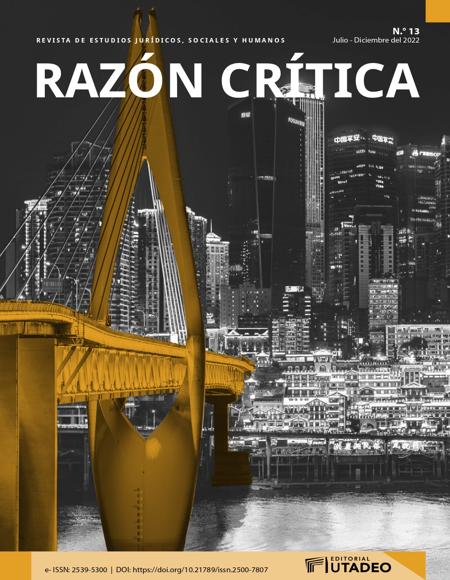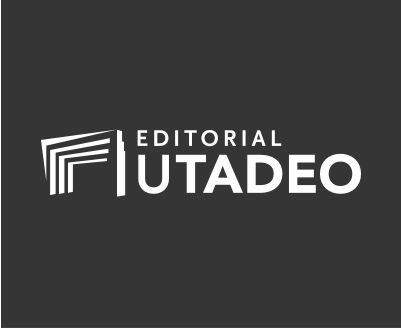Esta obra está bajo una licencia internacional Creative Commons Atribución-NoComercial-CompartirIgual 4.0.
Resumen
This work analysis Nigeria’s effort to counter terrorism and criminal financing (TCF). It shows that criminal and terrorist organizations in fund their operations through an illegal financial infrastructure embedded in the Nigerian financial sector. To counter and deny access to funds that could be used to destabilize the state and compromise the integrity of financial institutions in the country to these malign non-state actors, Nigeria has deployed several strategies. By using qualitative research methodology, and a historical, descriptive, and narrative approach, it was discovered that Nigeria has used both government institutions, such as the Economic and Financial Crimes Commission (EFCC) and the Nigerian Financial Intelligence Unit (NFIU) and legal-cum financial instruments, such as the Terrorism (Prevention) (Amendment) Act (TPAA) and the Anti Money Laundering/Combating Financing of Terrorism (AML/CFT), to disrupt TCF in the country. In its conclusion, the work argues that Nigeria will have to be strategic in its response if it hopes to effectively counter TCF. This strategic response, this work show, will involve the extensive use of technical and financial expertise from international anti-money laundering bodies like the EGMONT Group and the Financial Action Task Force (FATF).
Citas
Ajibola, I. O. (2015, July-September). Nigeria’s Amnesty Program: The Role of Empowerment in Achieving Peace and Development in Post-Conflict Niger Delta. Sage Open, 1-11. https://doi.org/10.1177/2158244015589996
Anti-Money Laundering and Combating the Financing of Terrorism in Banks and Other Financial Institutions in Nigeria Regulations, 2013 (AML/CFT). (2013, September 3). Federal Republic of Nigeria Official Gazette, FGP99/82011/1,000(OL55), 100(65) Lagos: Federal Government Printer. https://www.cbn.gov.ng/out/2014/fprd/amlact2013.pdf
Arseneault, M. (2015, May 21). Nigerian Intelligence Chief calls for Untangling of Boko Haram Funding. Radio France International. https://www.rfi.fr/en/africa/20150521-defeating-boko-haram-one-bank-account-time
Baffoe, E. E. (2017). The Role of the United Nations Security Council in Combating Terrorism Financing since 2001: Prospects and Challenges (Doctoral Dissertation) University of Ghana http://ugspace.ug.edu.gh/bitstream/handle/123456789/27618/TheRoleOfTheUnitedNationsSecurityCouncilInCombatingTerrorismFinancingSince2001ProspectsAndChallenges.pdf
Bergstrom, M. (2018). The Global AML Regime and the eu AML Directives: Prevention and Control. In C., King, C. Walker, and J., Gurule (Eds.), The Palgrave Handbook of Criminal and Terrorism Financing Law. Palgrave Macmillan. https://doi.org/10.1007/978-3-319-64498-1_3
Blanchard, L. (2014). Nigeria’s Boko Haram: Frequently Asked Question. Congressional Research Service. https://www.hsdl.org/?view&did=754842
Bowers, B. B. (2009, January). Hawala, Money Laundering, and Terrorism Finance: Mirco- Lending as an End to Illicit Remittance. Denver Journal of International Law and Policy, 37(3), 379-380. https://digitalcommons.du.edu/cgi/viewcontent.cgi?article=1261&context=djilp
Brantly, A. (2014). Financing Terror Bit by Bit. CTC Sentinel, 7(10). 1-5. https://www.ctc.usma.edu/wp-content/uploads/2014/10/CTCSentinel-Vol7Iss101.pdf
Campbel, J. (2021, February 18). Kidnapping and Ransom Payments in Nigeria. Foreign Affairs. https://www.cfr.org/blog/kidnapping-and-ransom-payments-nigeria
Campbell, J. (2020, November 18). Financing Boko Haram. https://www.cfr.org/blog/financing-boko-haram
Central Bank of Nigeria (CBN). (2018). Anti-Money Laundering/Combating the Financing of Terrorism (AML/CTF) Policy and Procedure Manual. Central Bank of Nigeria. https://www.cbn.gov.ng/out/2019/ccd/cbnanti-moneylaundering_combatingthefinancingofterrorism_manual(2).pdf
Diya, O. O. & Ilegogie, O. (2018, March 15). Nigeria in the Face of Expulsion from Egmont Group. Mondaq – Aelex. https://www.mondaq.com/nigeria/white-collar-crime-anti-corruption-fraud/683386/in-the-face-of-expulsion-from-the-egmont-group
Economic Community of West African States (ECOWAS). (2021). The Inter-Governmental Action Group against Money Laundering and Terrorism Financing in West Africa (GIABA). https://www.ecowas.int/institutions/the-inter-governmental-action-group-against-money-laundering-and-terrorism-financing-in-west-africa-giaba/
Economic and Financial Acts Commission (EFFC). (2004). Act, 2004. https://www.nfiu.gov.ng/images/Downloads/downloads/efcc.pdf
Egmont Group. NIGERIA. (2021). Nigerian Financial Intelligence Unit (NFIU). https://egmontgroup.org/fr/node/2528
Egmont Group of Financial Intelligence Units (EGFIUs) Charter, 1995. (1995). Egmont Group. https://www.uaf.cl/transparencia/Documentos/Charter_Egmont.pdf
Ewi, M. A. & Salifu, U. (2017, February). Money Talks: A key Reason Youth join Boko Haram. Institute for Security Studies, Policy Brief no. 98. https://media.africaportal.org/documents/policybrief98_1.pdf
Falode, J. A. (2013). Nation-Building Initiatives of the Olusegun Obasanjo Administration in the Fourth Republic, 1999-2007. University of Mauritius Research Journal, 19(5). https://doi.org/10.2139/ssrn.2135638
Falode, J. A. (2016). The Nature of Nigeria’s Boko Haram War, 2010-2015: A Strategic Analysis. Perspectives on Terrorism, 10(1). http://universiteitleiden.nl/binaries/content/assets/customsites/perspectives-on-terrorism/2016/005-the-nature-of-nigeria-s-boko-haram-war-2010-2015-a-strategic-analysis.pdf
Falode, J. A. (2018). Terrorism 4.0: A Global and Structural Analysis. Open Political Science, 1(1), 153-163. https://doi.org/10.1515/openps-2018-0013
Falode, J. A. (2019). Hybrid Doctrine: The Grand Strategy for Counterinsurgency and Counterterrorism Operations in Nigeria. Defence Against Terrorism Review (DATR), 11, 15-16. https://www.tmmm.tsk.tr/publication/datr/volumes/Datr_Vol.11.pdf
Falode, J. A. (2020). Small Arms and Light Weapons (SALW) and Transnational Crime in Africa. Vestnik RUDN International Relations, 20(1), 165. https://doi.org/10.22363/2313-0660-2020-20-1-158-169
Falode, J. A. (2021). Guns, Arms Trade and Transnational Crime in Africa. In U. A. Tar & C, P, Onwurah (Eds.). The Palgrave Handbook of Small Arms and Conflicts in Africa (p. 412). Switzerland: Palgrave Macmillan. https://doi.org/10.1007/978-3-030-62183-4_20
Fanusie, Y. & Entz, A. (2017). Boko Haram: Financial Assessment Center on Sanctions and Illicit Finances. Foundation for Defence of Democracies. http://Medium.com/affD/BokoHaramfinancialassessmentbe9e9cd27boi
FATF. (2014). Terrorist Financing in West and Central Africa. Financial Action Task Force (FAFT). https://www.fatfgafi.org/publications/methodsandtrends/documents/terrorist-financing-west-central-africa.html
Financial Action Task Force (FATF), 30 Years. (2019). Financial Action Task Force (FATF), Paris. http://www.fatfgafi.org/publications/fatfgeneraldocuments/FATF-30.html
GIABA. (2013). The Nexus between Small and Light Weapons and Money Laundering in West Africa. Inter-governmental Action Group Against Laundering in West Africa (GIABA).https://www.giaba.org/media/f/613_519_giabasalwnexus-final.pdf
GIABA Strategic Plan, 2016-2020. (2015). Inter-Governmental Action Group Against Money Laundering in West Africa (GIABA), Dakar, Senegal. https://www.giaba.org/media/f/1014_ENG-GIABA2016-2020StrategicPlan.pdf
Guitta, O. & Simcox, R. (2014) Terrorism in Nigeria: The Threats from Boko Haram and Ansaru. London: The Henry Jackson Society. http://henryjacksonsociety.org/wp-content/uploads/2014/06/Nigeria-Boko-Haram-Strategic-Briefing.pdf
Hoffman, L. K. & Melly, P. (2015, December). Nigeria’s Booming Borders: The Drivers and Consequences of Unrecorded Trade. Chatham House Report. https://www.chathamhouse.org/sites/default/files/publications/research/20151207NigeriaBoomingBordersKoniHoffmannMelly.pdf
Independent Advisory Group on Country Information (IAGCI). (2021, July). Nigeria: Islamist Extremist Groups in North East Nigeria, Version 3.0. Home Government, United Kingdom. http://ent/uploads/system/uploads/attachment_data/file/1003788/NGA__Islamist_extremist_groups_in_North_East_Nigeria_-_CPIN_-_v3.0__FINAL_Gov_UK_.pdf
International Monetary Fund (IMF). (2021, May). IMF Policy Paper 2021 Financial Sector Assessment Program Review – Background Paper on Quantitative Analysis. International Monetary Fund, Washington, United States. https://doi.org/10.5089/9781513584126.007
Ibrahim, B. and Mukhtar, J. I. (2017, September). An Analysis of the Causes and Consequences of Kidnapping in Nigeria. African research Review, 11(4), 134-143. https://doi.org/10.4314/afrrev.v11i4.11
Jackson, J. K. (2017, March, 23). The Financial Action Task Force: An Overview. Congressional Research Services, RS21904. https://fas.org/sgp/crs/misc/RS21904.pdf
Levitt, M. & Jacobson, M. (2008). The Money Trail: Finding, Following and Freezing Finances. Washington DC. The Washington Institute for Near East Policy
Maina, M. (2021, July 15). Boko Haram/ISWAP: Terrorists still Control Villages, Collect Taxes but not Governing Borno – Residents. Daily Post. https://dailypost.ng/2021/07/15/boko-haram-iswap-terrorists-still-control-villages-collect-taxes-but-not-governing-borno-residents/
Maza, K. D., Koldas, U., & Aksit, S. (2020, April-June). Challenges of Combating Terrorist Financing in the Lake Chad Region: A Case of Boko Haram. Sage Open, 1-17. https://doi.org/10.1177/2158244020934
McCoy, T. (2014, June 6). Paying for Terrorism: Where Does Boko Haram gets its Money from? Independent. https://www.independent.co.uk/news/world/Africa
Moton, A. (2010). Understanding Terrorism: Contested Concept, Conflicting Perspectives and Shattering Consequences. Intellectual Discourse, 18(1), 35-63
Mutual Evaluation – Nigeria. (2012). Inter-Governmental Action Group Against Money Laundering in West Africa (GIABA), Dakar, Senegal. https://www.giaba.org/media/f/823_4thFURNigeria-English.pdf
Nigerian Financial Intelligence Unit Report (NFIUR). (2011). Nigerian Financial Intelligence Unit. https://www.nfiu.gov.ng/images/Downloads/downloads/annualreport.pdf
Nigerian Financial Intelligence Unit (NFIU) Act, 2018. (2018). Nigerian Financial Intelligence Unit. https://www.nfiu.gov.ng/images/Downloads/downloads/Nigerian-Financial-Intelligence-Unit-Act-2018.pdf
OECD. (2019). Money Laundering and Terrorist Financing Awareness Handbook for Tax Examiners and Tax Auditors. Organization for Economic Cooperation Development (OECD). http://www.oecd.org/tax/crime/money-laundering-and-terrorist-financing-awareness-handbook-for-tax-examiners-and-tax-auditors.pdf
Onyema, M., Roy, P., Oredola, H. & Ayinla, S. (2018). The Economic and Financial Crimes
Commission and the Politics of (In) effective Implementation of Nigeria’s Anti-Corruption Policy. Anti-Corruption Evidence, Working Paper 007. https://eprints.soas.ac.uk/31283/1/ACE-WorkingPaper007-EFCC-Nigeria.pdf
Sommerlad, J. (2018, August 30). Boko Haram: Who are the Nigerian Jihadist Insurgents and how are they funded. Independent. https://www.independent.co.uk/news/world/africa/boko-haram-who-nigeria-jihadi-terror-group-west-africa-girls-insurgents-sharia-law-a8513921.html
Terrorism (Prevention) Act, 2011 (TPA). (2011, June 10). Federal Republic of Nigeria Official Gazette, FGP99/82011/1,000(OL55), 98(59). Lagos: Federal Government Printer. https://gazettes.africa/archive/ng/2011/ng- government-gazette-dated-2011-06-10-no-59.pdf
Terrorism (Prevention) (Amendment) Act, 2013. (2013). Counter Terrorism Centre. Office of the National Security Adviser, Counter Terrorism Centre, Abuja, Nigeria. https://ctc.gov.ng/terrorism-prevention-amendment-act-2013/
TRAC. (2016). Boko Haram Coffers and Coffins: A Pandora’s Box - The Vast Financing Options for Boko Haram. Terrorism Research and Analysis Consortium. https://www.trackingterrorism.org/article/boko-haram-coffers-and-coffinspandoras-box-vast-financing-options-boko-haram
UNODC. (2009). Model Provisions on Money Laundering, Terrorist Financing, Preventive Measures and Proceeds of Crime. United Nations Office on Drugs and Crime (UNODC). https://www.unodc.org/documents/money-laundering/Model_Provisions_Final.pdf
UNODC. (2013). Transnational Organised Crime in West Africa: A Threat Assessment. United Nations Office on Drugs and Crime (UNODC). https://www.unodc.org/documents/data-and-analysis/tocta/West_Africa_TOCTA_2013_EN.pdf
UNODC, (2017). The Drug Problem and Organized Crime, Illicit Financial Flows, Corruption and Terrorism. United Nations Office on Drug and Crime (UNODC). https://www.unodc.org/wdr2017/field/Booklet_5_NEXUS.pdf
Varghese, J. (2014). Australian Negotiator claims central bank of Nigeria is financing Boko Haram. International Business Times.https://www.ibtimes.co.in/australian-negotiator-claims-central-bank-nigeria-funding-boko-haram-607992
Vittori, J. (2011). Terrorist Financing and Resourcing: Springer Press. https://doi.org/10.1057/9780230117716
Wittig, T. (2011). Understanding Terrorist Finance. United States: Palgrave Macmillan. https://doi.org/10.1057/9780230316935

 PDF (English)
PDF (English)
 FLIP
FLIP












